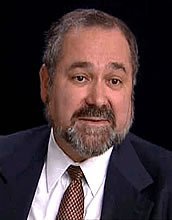Steele on Electoral Reform - Part 3: Voting for People

All national, state, and local elections must immediately begin, and by Election Day 2014 complete, the process of phasing out plurality voting and adopting a better voting system. An improved voting system should collect more information from voters using improved ballot design, and use that information to accomplish at least two of the following three goals:
(1) to better satisfy more voters if all voters vote sincerely;
(2) to satisfy more voters if all voters are strategic;
(3) to encourage voter sincerity.
Well-understood systems which satisfy two of those goals include Approval Voting, Condorcet voting, Instant Runoff Voting, and Range Voting. Newer systems which may satisfy all three goals include Majority Judgment, Simple Optionally-Delegated Approval (SODA) voting, and Proportional Representation (except closed-list forms). All ballot counting must be done using hand-marked precinct-based and Hand-Counted Paper Ballots (HCPB). Election Day must fall on a Sunday. Every citizen 18 or older, regardless of condition or transient status, must be able to vote easily. Early Voting must be universal. Which voting system can be selected on a national basis via the National Initiative for Democracy.
- - - - - - -
This is, without competition, the most hotly debated element of electoral reform. This is the one that brought many stakeholders, each with their own preferred solution, each with their own strong views that all other solutions are bad, into the open.
It merits comment that so long as Gerrymandering is allowed to exist, where Members choose their voters instead of voters choosing their representatives, this electoral reform is nearly irrelevant. This helps to emphasize the larger point that electoral reform is a "whole" that cannot be attacked one items at a time. Campaign finance reform, for example, means nothing if all the other elements of corrupt electoral practice persist.
I personally find all of this confusing. It is perfectly suited for a Citizen Wisdom Council to address and resolve, with the admonition that we should not give up on 2012. Between now and 1 April we are perfectly capable as a public of finalizing the Electoral Reform Act of 2012, and compelling our Congress to pass this legislation and our President to sign it.
See Also:
Directory of Activist Individuals & Organizations (USA)
Wisdom Council, The Co-Intelligence Institute
Robert Steele is a former spy, honorary hacker, #1 Amazon reviewer for non-fiction, a former small business CEO, and founder of Earth Intelligence Network, a 501c3 committed to creating public intelligence in the public interest. This is the first part in an ongoing multi-part series “Robert Steele on Electoral Reform”. All views expressed are the writer's own and do not necessarily reflect the views of IVN or IVN partners.
Previous: Part 2: Ballot Access
Next: Part 4: Voting for Issues
Full Series
Part 9: Funding (Coming Soon)
Part 10: Legislation (Coming Soon)
Part 11: Constitutional Amendment (Coming Soon)
Part 12: The Stakeholders (Coming Soon)
Part 13: Overview of The Ethics (Coming Soon)
Part 14: Overview of The Action Plan (Coming Soon)
Part 15: The Pledge (Coming Soon)
Part 16: The Statement of Demand (Coming Soon)
:






